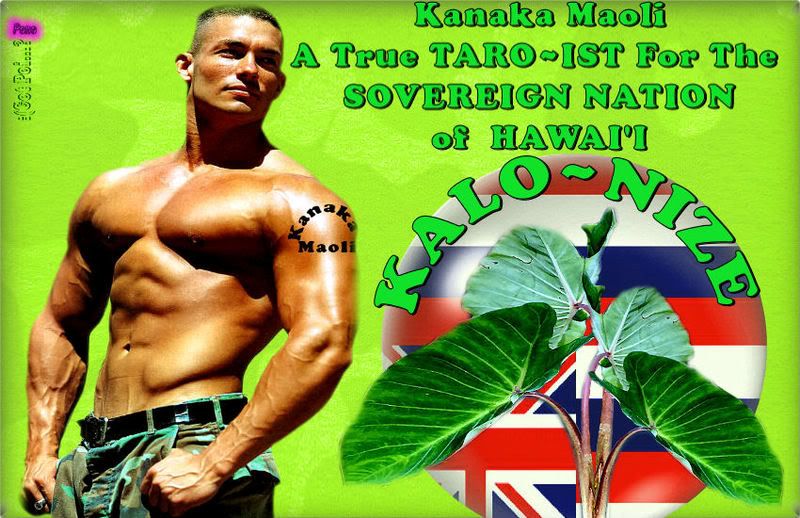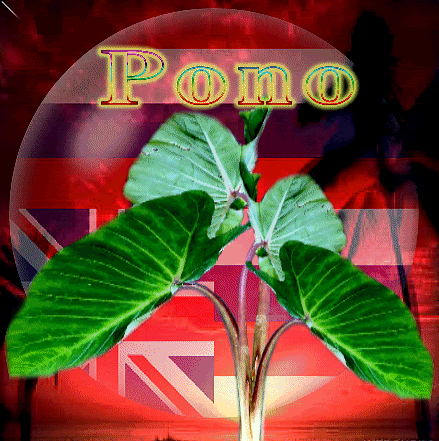
The editors of the Maui News mischaracterized this letter to the editor in the title – clearly,the concerns expressed in the letter to the editor are not for the harms toHC&S, but to the taro farmers. Politics at play again.xxx
THE MAUI NEWS
2-14-10
VIEWPOINT: Obsolete practices are hurting HC&S
By ED WENDT and LYN SCOTT
The analysis in the Jan. 30 editorial is shallow and wrong. The Maui News presumes "very goodjobs" would be lost unless sugar stays around so there can be a "transition to aviable operation, like alternative energy."What about the lost opportunity foralternative jobs and development?
For more than 100 years, Alexander & Baldwin has invested in diverting water from East Maui toCentral Maui to operate a sugar plantation, dewatering streams that fed avibrant Hawaiian culture and jobs of other kinds - taro farming, fishing andsubsistence gathering that put food on the family tables throughout East Maui.The diversions caused untold suffering to our families, who for many decadeswere no longer able to feed or support themselves. Of necessity, many abandonedancestral lands that could not be made productive.The foundations of ourculture, allegedly revered by the people of Hawaii, weredestroyed. Restoringstreams is but a small measure toward repair of inestimable damage thediversions have caused.
The people of Hawaii have enshrined - in the state constitution - protection and restorationof the Hawaiian culture when public agencies act. The law is squarely on theside of restoration. Why is it that an agribusiness corporation controlsresources that the people of this state - through protections in theirconstitution - have pledged to protect?
All along, Hawaiians have been asking for reasonable sharing. But with no more to guide itthan a corporate conscience, the A&B/East Maui Irrigation Co./HawaiianCommercial & Sugar triumvirate has refused and instead embarked uponwell-funded political, legal and public relations campaigns.HC&S is wastingmassive amounts of water that it diverts from 33,000 acres of public lands -much of it highly desirable lands prized and held by the monarchy as crownlands. It transports water miles from what was a verdant tropical rainforest inEast Maui to Central Maui.
Over the century, A&B has not properly repaired and upgraded an antiquated and leakyirrigation system. Because the rent charged is below market rate, it has nofinancial incentive to repair leaking ditches, siphons and structures that werefirst built to transport water a century ago. HC&S can afford to dump waterand not invest in upgrading its systems.
The water commission staff determined that HC&S water usage is excessive, exceedingreasonable use by 40 to 70 percent during a typical year. HC&S could easilyshare water with East Maui where the need isdesperate.
Na Moku Aupuni O Ko'olau Hui, the nonprofit organization whose membership includes East Mauifarmers of Keanae-Wailuanui and Honopou families seeking restoration, hasrepeatedly sought cooperation from A&B/EMI/HC&S over the years to noavail.
The Maui News' perspective is that HC&S is too big to fail because it controls 800 jobs.Youpatently disregard any notion of sustainability and other benefits therestoration of streams could bring to offset that loss.HC&S shipments of rawand refined sugar more than 5,000 miles to produce and market sugar is theantithesis of sustainability and food security - demanding oil from which Hawaiiis so desperately trying to free itself. These obsolete practices defy thefindings of the 2050 Sustainability Task Force as key to our state's survival inthe future.
This crisis for HC&S is neither new nor unforeseeable. HC&S is the last of a dozen majorsugar plantations to operate in Hawaii. It and its former competitors faced theharsh reality of the marketplace for decades. Even Gay & Robinson, its lastcompetitor, made the strategic switch to alternative fuel crops years ago.HC&S talks about a similar strategy now as if it just thought about itrecently. This procrastination reflects shortsighted management. Trying to hangon to its final year, in this context, is hardly something worthy of the praiseheaped upon it at this eleventh hour.
Let the water commission perform its constitutional duties.You do a disservice to your readersby confusing the issues, facts and reality staring HC&S in the face with anunbalanced editorial on such a major resource allocation issue forMaui.
* Ed Wendt is a member of Na Moku Aupuni o Ko'olau Hui. Lyn Scott is a member of the Honopouohana.


Comments
No Treaty of Annexation, Ke Ola Mau Ke Aupuni Moi O Hawaii Nei, o Pomai